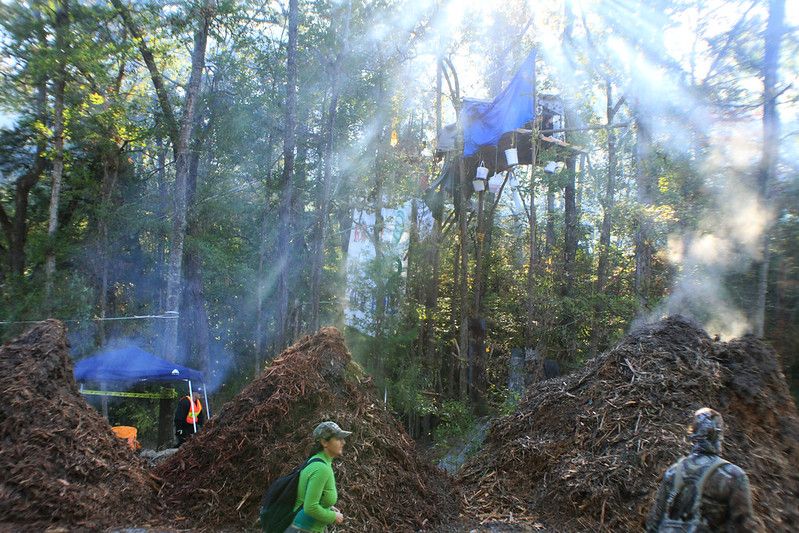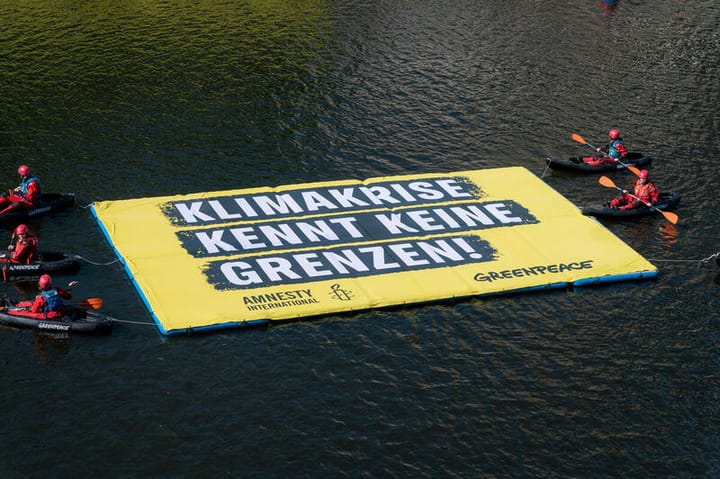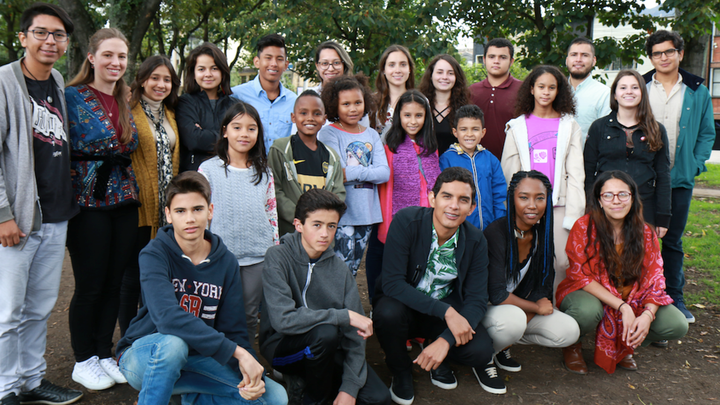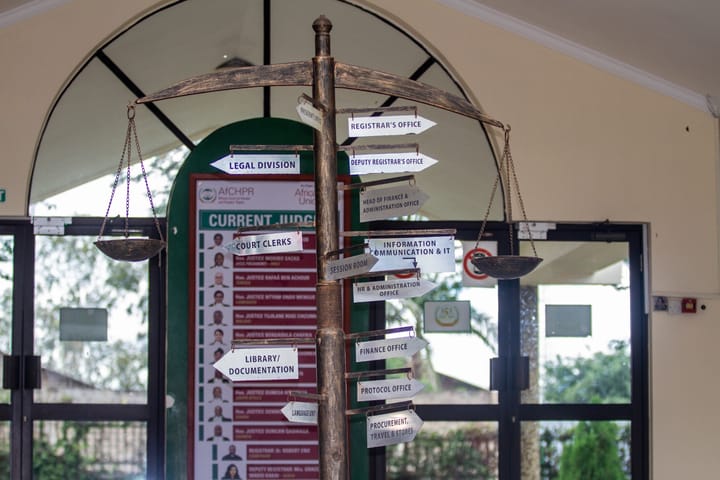SLAPP attack: The clap-back against lawsuits that threaten climate activism

To call the Keystone XL pipeline controversial would be an understatement. Over the 13 years in which it was proposed, commissioned and eventually abandoned as a means of bringing oil from Canadian tar sands to the US, it became the epicentre of an enormous environmental, public health and civil rights battle that encapsulated the wider global struggle between corporate and societal interests.
But its end was hard won. In 2012, dozens of people protesting in Texas, where the oil was going to be refined, found themselves hit by lawsuits by the pipeline’s developer. The company behind the project, then known as TransCanada, claimed protestors were costing it millions of dollars by blocking construction.
Committed to their principles but unable to bear the financial risks, many activists decided to settle. One, Tammie Carson, told US NGO EarthRights International: “I had no choice but to settle or lose my home and everything I’ve worked for my entire life.”

The cases against the Keystone XL protestors were clear examples of strategic lawsuits against public participation, also known as SLAPPs - legal threats used to silence activists or journalists that are proving a serious problem around the world.
The UK’s Bureau of Investigative Journalism, which has been SLAPP-ed various times over its work, defines them as lawsuits that are over a matter of public interest, have a weak legal case and in which there is a vast imbalance of resources.
As well as formal legal challenges that attempt to drag campaigners through lengthy, costly and stressful litigation, opponents say powerful individuals and organisations are employing a range of judicial harassment techniques. These include subpoenas that attempt to access critics’ private information by portraying their activities as part of a conspiracy, cease-and-desist letters that threaten to sue critics, and improper funding arrangements with local police.
SLAPPs were first identified as a public threat to free expression in the US during the 1980s. The acronym itself was coined by two law professors: George W. Pring and Penelope Canan. In his 1989 article in Pace Environmental Law Review, Prof Pring wrote that thousands of ordinary citizens were being “sued into silence”: “The apparent goal of SLAPPs is to stop citizens from exercising their political rights or to punish them for having done so.”
Charlie Holt, legal counsel for campaigns at Greenpeace International who leads the organisation's SLAPP resilience strategy, says the conditions were ripe in the US for the rise in these kinds of tactics, despite the apparent protection of the first amendment. “SLAPPs operate through the litigation process and they’re less concerned with the outcome. So you can have substantive protections built into defamation laws or other laws, but if the litigation process is amenable to abuse then SLAPPs emerge as a problem.”
Prof Pring found that SLAPPs were partly a response to the burgeoning environmental movement of the 1960s and 70s and warned that the problem was growing.
"SLAPPs are clearly being used to try to inflict serious damage on environmental movements”
Greenpeace itself started developing a proactive anti-SLAPP strategy after being hit twice by lawsuits in 2016 and 2017 by a lawyer representing two ostensibly unrelated companies: logging firm Resolute Forest Products, and Energy Transfer Owners which built the Dakota Access Pipeline. Both cases were filed under the US Racketeer Influenced and Corrupt Organizations Act (known as RICO, famously used against lawyer Steven Donziger) to try to claim huge damages.
Even though Greenpeace succeeded in having both most allegations in both cases dismissed, Holt says such lawsuits are deeply problematic. In the US legal context, “you have the endless potential to ramp up costs, to stretch out proceedings. Legal fees are eye-wateringly high and there's no protection for people who do not have the money to afford a serious defence.”
SLAPPs affect a wide variety of civic issues, but environmental action has continued to be one of their main targets.
The Business & Human Rights Resource Centre has recorded 413 SLAPPS around the world, of which well over half relate to the environment. Legal researcher Lady Nancy Zuluaga Jaramillo says a fast and just transition to renewable energy is at risk of being derailed due to sustained attacks like these. “Environmental, land rights, climate and labour rights defenders – the very people on the frontlines of driving a just transition – are under attack because they are raising concerns about business actions harmful to human rights and the environment."
EarthRights International has many years of expertise working in environmental justice. But when it decided to zoom in on the fossil fuel industry as a snapshot of SLAPPs, even it was surprised by how serious the problem was. The NGO’s report, published in September, identifies 152 cases over the past decade where fossil fuel firms used SLAPPs and other judicial harassment tactics to try to silence or punish its critics in the US.
It said in a statement that the industry is not alone in its use of these tactics “but stands out for the brazenness and scale of its attacks”. Senior policy advisor for EarthRights International Kirk Herberston told The Wave they are “clearly being used to try to inflict serious damage on environmental movements”.
Holt notes that there has been an evolution in tactics over the years. RICO was originally designed to tackle mafia activity, but then started to be used against anti-abortion protesters and animal rights activists. Suddenly industries like oil and gas "were like ‘Oh, actually this could be used against protesters in our own way’”.
As well as professional academics and researchers, lawsuits are being wielded against voluntary fact-checkers who spend their time countering misleading claims about climate change on social media sites such as Facebook and TikTok.
A global problem
Although famously one of the world’s most litigious places, SLAPPs are not only a problem in the US. According to a 2020 study commissioned by the European Commission, they are “increasingly used across EU member states, in an environment that is getting more and more hostile towards journalists, human rights defenders and various NGOs”.
Although each jurisdiction is different, Holt says litigious organisations are learning from SLAPP strategies. A number of cases have emerged in Europe which seem to mirror those in the US. “For example, the Korindo lawsuit against Rainforest Rescue and Mighty Earth have similarities in the sense of ‘Let's file a heavy-handed lawsuit, let’s marginalise them.’ And that was in response to what was a rigorously researched report,” says Holt.
Amnesty International has highlighted particular problems with SLAPPs in India and the Philippines, while a 2017 paper in the South African Journal on Human Rights identified them as an emerging obstacle to public interest environmental litigation in the country.
Latin America in particular is a hotspot. Last year, the Business & Human Rights Resource Centre identified 149 cases bearing the hallmarks of SLAPPs in the region brought against individuals and groups defending human rights and/or the environment since 2015. In Ecuador, EarthRights described the SLAPP tactics used by Chevron against the organisations, lawyers, journalists and activists who campaigned against the company’s operations as “the most extreme” example of these kinds of lawsuits.
Earlier this year, a joint session by the UN Working Group on Business and Human Rights, the UN special rapporteur on human rights defenders and civil society organisations found that SLAPPs are a global problem, and concluded that immediate action by states and business actors is needed to stop its use “against people who are bravely and legitimately speaking out against injustice in the context of business operations”.
"In some countries, it is harder to disguise a SLAPP as a legitimate lawsuit because people will be more sensitive to attacks on free speech”
Holt notes that some jurisdictions are more fertile ground for these sorts of cases than others, largely because of a lack of procedural protections built into laws and the legal system. But there is also a cultural aspect to the problem. “In some countries, it is harder to disguise a SLAPP as a legitimate lawsuit because people will be more sensitive to attacks on free speech.”
Government attempts to delegitimise protest movements can give corporations licence to sue, he says. But it can also have the opposite effect. “Where you’ve got respect and protection for those rights [to protest], then carbon majors and other fossil fuel companies may feel the need to pursue SLAPPs. So you do see countries, like in Germany for example, there is far more respect for the perceived legitimacy of climate activists and we have had a few very heavy-handed lawsuits from big oil and gas companies like RWE.”
Fossil fuel companies are now trying to spin the tale. In 2018, Exxon attempted to force California local government officials and their attorneys to submit to depositions, alleging that the climate lawsuits filed by these governments were part of a conspiracy. Texas Supreme Court disagreed. “So far, the industry has not been successful in using these tactics, but it seems like it's going to be a recurring pattern,” says Herbertson.
Two years later, Exxon claimed to be the victim of a such a lawsuit by the Massachusetts Attorney General, which was (and still is) pursuing the company for allegedly deceptive advertising to Massachusetts consumers and for misleading state investors about the risks to Exxon’s business posed by fossil fuel-driven climate change.
While Exxon’s gambit was not successful, Herbertson says the fossil fuel industry has used related tactics to try to counter the proliferation in lawsuits seeking to hold it to account. “The companies have tried to promote this narrative that they're the victims of a conspiracy by deep-pocketed environmental organisations,” he says. “We saw a lot of that being thrown around in industry publications, but it looks now like they're trying to use that in the courts as well to say climate litigation is part of a wrongful conspiracy.”
Defiantly not turning the other cheek, environmental activists have found common ground with free speech campaigners in trying to stem the tide of SLAPPs.
In the US, 32 states have some form of legislation giving the courts power to block cases being used to intimidate people exercising their rights to free speech. Holt says these anti-SLAPP laws vary in strength but some have enabled organisations like Greenpeace to dismiss racketeering accusations, avoid arduous discovery processes and shift legal costs back onto unsuccessful claimants.
The best examples carve out explicit exemptions for public interest litigation, which strategic climate litigation is clearly part of. “No one can sensibly make that claim about the activities of an oil and gas company,” says Holt.
However, campaigners want stronger blanket protection. Five years ago, the Protect the Protest coalition was formed in response to high-profile SLAPP cases targeting environmental activism, and it has continued to push for reform.
In September, US congressman Jamie Raskin introduced a federal anti-SLAPP bill, in part to address fossil fuel industry efforts to stifle free speech. The bill isn’t perfect - Herbertson goes into the fine detail of it here - and it remains to be seen if it goes anywhere. But reviews of voting records show wide support for this sort of legislation.
Canada, Australia, Indonesia and the Philippines also have legislation with anti-SLAPPs provisions, says Jarramillo.
Meanwhile the UK government recently announced plans to grant courts in England and Wales new powers to dismiss SLAPPs, following allegations that oligarchs close to Russian president Vladimir Putin are using expensive litigation in UK courts to shut down criticism and deter investigations into their affairs. Another prominent case, a libel claim against Financial Times writer Tom Burgis by Kazakh mining conglomerate Eurasian Natural Resources Corporation, was thrown out of court earlier this year.
No EU member state has yet enacted targeted rules to provide protection against SLAPPs, although a coalition of civil society organisations is pushing for regulatory reform and a new anti-SLAPP law. A proposed directive is now in the works. Introducing the bill, the EU’s vice-president for values and transparency Věra Jourová said it would “help to protect those who take risks and speak up when the public interest is at stake”, including on “environmental and climate matters”.
Learning to adapt
Holt describes SLAPPs as the most visible manifestation of a broader problem, “which is that it's too easy to weaponise the litigation process, and even the threat of lawsuits can be enough to chill speech”.
“Part of the reason [these legal threats are] so intimidating is because they're really complicated,” agrees Herbertson. “I mean, EarthRights is an organisation of lawyers so it's more familiar to us. But what if there's a small community group that is concerned about pollution of their water or air and they want to speak up but they won't necessarily have the resources to know what is protected… free speech? What could actually get them in trouble? There are all these tricky decisions that might make them second guess themselves.”
The threats against the Keystone XL protestors ultimately failed, with the developer abandoning the project last year. And environmental campaigning continues apace despite continuing legal challenges and the very real threat of death in some countries.
But SLAPPs have likely changed how activists communicate and strategise for good. “There's always this risk that the email that you're writing to these groups that you work with is suddenly going to fall into the hands of a company that you're campaigning against for a subpoena,” says Herbertson. “So while I don't think the companies in the fossil fuel industry have succeeded in silencing criticism - the climate movement continues to grow - it has certainly forced people to adapt.”
This article was edited on 12 October 2022 to clarify which charges against Greenpeace were dismissed.



